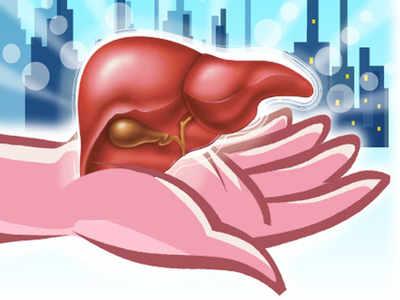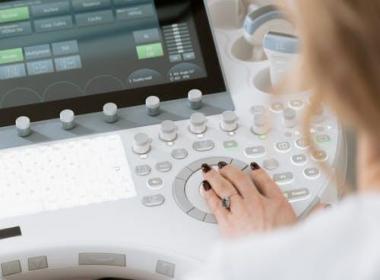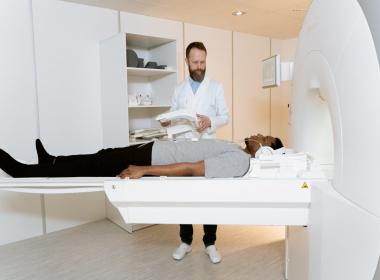When the liver stops functioning, it needs to be replaced by a healthy organ and can take on all the functions of the original organ. The best option for this is a living donor liver transplant which offers several advantages over other forms of treatment. The living donor liver transplant is an experimental procedure in India where a relative or friend donates their healthy functioning organ to another person who requires a transplant due to liver failure.
A living donor liver transplant provides a new lease of life to patients suffering from irreversible liver failure. In this article, we will discuss the living donor living transplant. BLK Max Hospital would be the right place for you to get your liver transplant done.
What Is A Living Donor Liver Transplant
A living donor liver transplant is an operation to remove part of the liver from a healthy person (living donor) and implant it into someone with end-stage liver disease who needs a new, functional liver. The portion of the donated organ that's transplanted may come either from another adult or child. This procedure is also called living-related hepatectomy or partial hepatectomy.
The health benefits for both recipients and donors are tremendous as well as life-saving.
There are many advantages associated with this type of surgery, including reduced waiting time, reduced risk of rejection since the recipient's immune system does not have to be suppressed, short hospital stay because only one lobe instead of the entire liver has to be transferred, etc.
Why Living Donor Liver Transplant Is Done
The number of individuals on the waiting list for a liver transplant significantly outweighs the volume of deceased-donor liver sections available. While planning for a transplant, possessing a living liver donor enables the recipient to prevent several potential health issues.
Individuals who get a living-donor liver transplant suffer fewer medical complications and higher survivorship of the given organ than others who get a dearly departed liver transplant. Because acceptable deceased-donor organs are uncommon, children who require a liver transplant are much more likely than adults to have a living-donor liver transplant. The majority of living liver donors are closest relatives of the liver transplant recipients, but some are people with no family relationship at all.
Before the liver transplant surgery:
Before the liver transplant surgery, your health will be assessed by a team of doctors and nurses. The medical tests carried out include blood tests, electrocardiogram (ECG), chest X-ray or echocardiography, kidney function test, etc. In some cases, it is also important that you lose as much weight as possible before the procedure to reduce risks during surgery and improve chances of success for this treatment option.
If you are obese, then ideally, losing more than 20% total body weight may help create enough space inside the abdomen for transplanted organs, thereby reducing the operative time needed for liver transplant surgery, which drastically improves outcomes.
However, if you cannot lose weight or have other health problems that may not allow for this procedure, then a liver transplant using a small part of the donor's organ can also be performed.
During the liver transplant surgery:
The most common type of living donor transplant is when a portion (segment) of the donor's healthy liver is removed and implanted into a recipient with end-stage liver disease. A small incision about an inch long is made in your upper abdomen above your navel through which these organs are connected with a few stitches later on.
The entire process will take between three to six hours, depending upon how much damage was caused due to underlying conditions like hepatitis B & C infection. This method requires lifelong immunosuppressant drugs to prevent rejection of transplanted liver.
The other option is where your live donor may donate an entire portion (lobe) of their healthy liver, and this lobe would be implanted in you, which can help bridge the gap until your failing organ starts functioning normally on its own again, thereby avoiding the need for any immunosuppression therapy.
After the liver transplant surgery
After liver transplant surgery, you will be taken to the recovery room, where your doctors will closely monitor your condition for the next few hours. Once it is confirmed that both donor and recipient are slowly recovering well, they can be sent back to their respective rooms. A full medical check-up would take place daily until the patient leaves the hospital completely.
Living donor liver transplants provide a new lease of life to people suffering from end-stage diseases like cirrhosis due to hepatitis B or C infection etc., besides improving long term success rates drastically compared with traditional method i.e., standard deceased organ donation procedure because these organs come pre-tested & screened before being implanted in recipients thereby reducing chances of complications during treatment significantly.
The Bottom Line
Living donor liver transplant is the only long-term solution for patients suffering from end-stage liver disease. The most common cause of liver failure in India is Hepatitis or alcohol abuse and fatty liver. Living donors provide a new lease of life to these patients by donating part of their healthy livers, transplanted into recipients with minimal complications during surgery.
Also read about:
Retail Marketing Why is it More Important in Business
What is the Requirement for Getting a Study Visa in Canada
What makes a good nursery A parent s handbook to finding the perfect nursery school in Singapore












